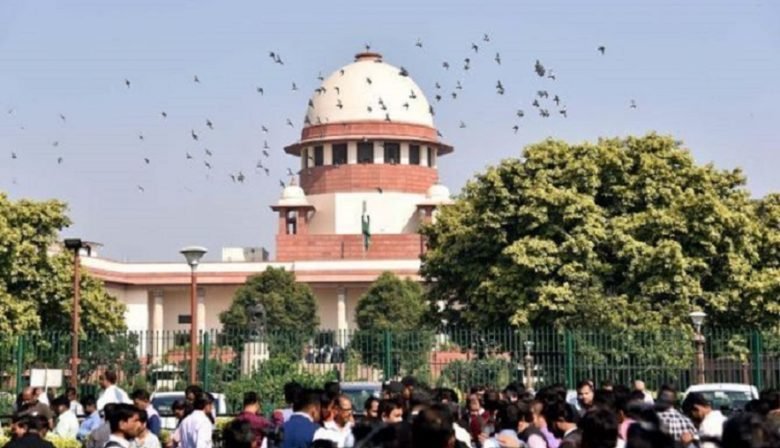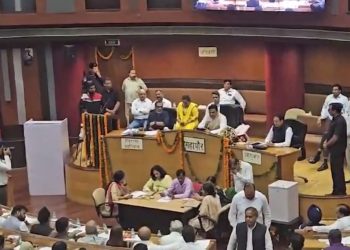New Delhi: The Supreme Court on Monday declined to entertain a plea against the Bombay High Court order, which directed demolition of illegal portions of a bungalow in Mumbai belonging to the company owned by Union Minister Narayan Rane’s family.
Earlier this month, the high court had ordered the Brihanmumbai Municipal Corporation (BMC) to demolish illegal portions of the bungalow.
A apex court bench of Justices Sanjay Kishan Kaul and Abhay S. Oka declined to entertain the appeal filed by Kaalkaa Real Estates Pvt Ltd, Rane’s family company, which owns the bungalow.
Rane moved the apex court seeking stay of the demolition of alleged unauthorised structures carried out on ‘Aadish Bungalow’ situated at Juhu. Kaalkaa Real Estates Pvt Ltd was represented by a team of advocates from Karanjawala & Co.
The petition was concerned with the land situated at Juhu, totally admeasuring 2,209 square metres of which the petitioner owns 1187.84 square metres. After obtaining necessary permissions from the Municipal Corporation for Greater Mumbai (MCGM), the petitioner carried out construction of a residential premises. After completion of the construction, an occupation certificate was issued in January 2013.
According to the petitioner’s law firm, after hearing the petition extensively, the apex court dismissed the petition and granted three months’ time to Rane to bring the residential building in compliance with the applicable laws, failing which the high court order passed September 20, 2022, would be implemented.
The high court had also imposed costs of Rs 10 lakh on the company to be deposited with the Maharashtra State Legal Services Authority (MALSA) while dismissing the petition seeking directions to BMC to consider the second regularisation application.
The MCGM issued various notices under Section 351 (IA) of the Mumbai Municipal Corporation Act, 1881 alleging that some parts of the bungalow were unauthorised. The same was contested by the petitioner and orders dated March 11, 2022 and March 16, 2022 were passed by the MCGM against the petitioner and were challenged in a writ petition before the high court.
(IANS)




















